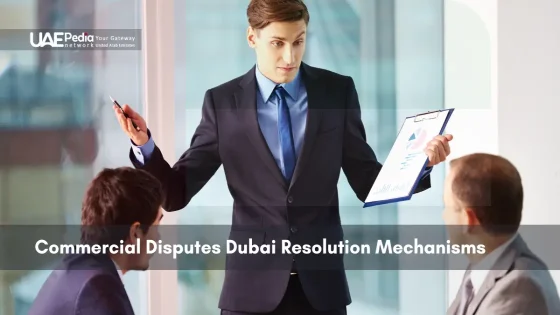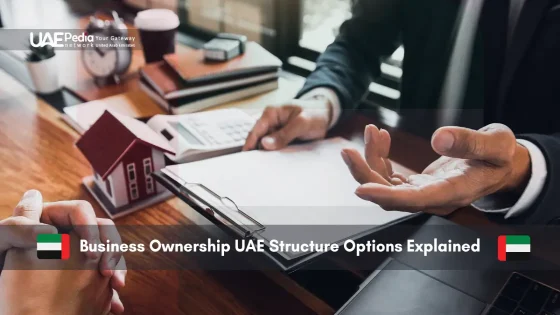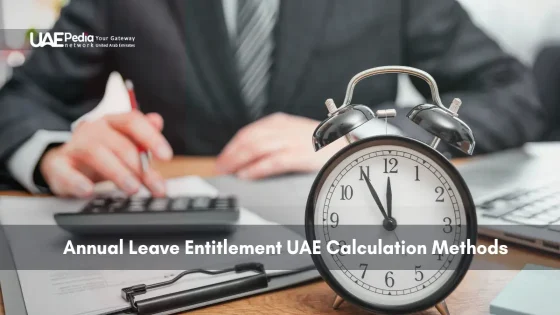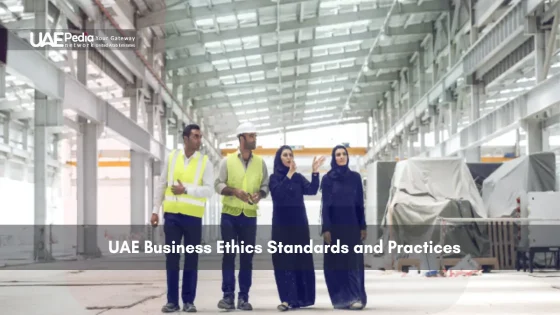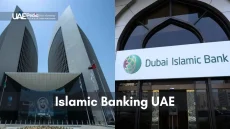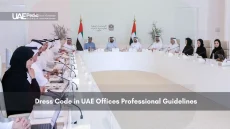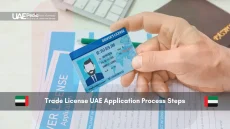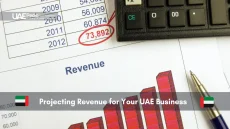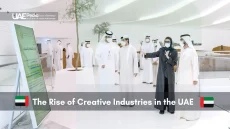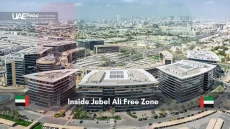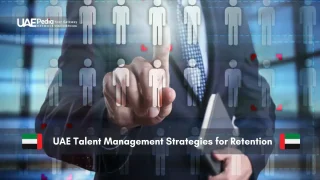What if resolving a corporate disagreement here felt less like a courtroom drama and more like a strategic chess match? The UAE’s legal landscape blends tradition with global ambition—a fusion of sand-colored onshore civil codes and sleek free zone common law frameworks. For entrepreneurs and multinational teams, this duality offers flexibility… and complexity.
Imagine standing where desert meets skyscraper: local courts handle most cases, while zones like DIFC and ADGM cater to international standards. Whether you’re drafting contracts or managing partnerships, understanding these layers isn’t just smart—it’s survival in a market where 90% of companies face cross-border challenges.
This guide isn’t about dry legal jargon. We’ll walk through arbitration’s rising popularity, why mediation saves time (and face), and how to choose between litigation paths. You’ll gain insider clarity on regional trends shaping the Middle East’s $1.5 trillion economy.
Key Insights:
- Two legal systems coexist: onshore courts for local matters, free zones for global business needs
- Effective conflict management protects partnerships and fuels growth in fast-moving markets
- Hybrid strategies—mixing arbitration with local negotiation—often yield the best outcomes
Navigating the UAE’s Dual Legal Framework: Onshore and Free Zone Jurisdictions
Picture navigating a maze where one path follows ancient trade routes and another mirrors Manhattan’s grid. That’s the UAE’s legal ecosystem—split between onshore courts rooted in tradition and free zone jurisdictions built for global business.
Contrasting Onshore Civil Law and Free Zone Common Law Systems
Onshore courts operate like a well-rehearsed Arabic opera—civil law principles guide three-tiered stages (First Instance, Appeal, Cassation). Proceedings unfold in Arabic, with judges actively steering cases. Contracts here? They’re interpreted word-for-word, like translating poetry.
The Role of DIFC and ADGM in International Dispute Resolution
Now peek at DIFC and ADGM courts. These English-speaking hubs function like London or New York courtrooms. Judges reference precedents, not just statutes. A tech startup’s contract dispute might wrap faster here—with familiar procedures for international teams.
Why does this split matter? Imagine two chefs: one follows a recipe precisely (onshore), while another tweaks based on taste (free zones). Your choice affects timelines, costs, and even how evidence gets presented. One Dubai-based logistics firm saved 6 months by shifting their case to ADGM—avoiding Arabic translation delays.
- Language shapes strategy: Onshore requires certified translations
- Cultural context matters: Local courts value formal relationships
- Hybrid approaches win: Blend mediation with jurisdictional strengths
Choosing the Right Jurisdiction: Onshore vs. Free Zone Courts in Dubai
Think of Dubai’s legal ecosystem like a smartphone user choosing between iOS and Android—both get the job done, but their interfaces feel worlds apart. Navigating this split requires understanding which “operating system” fits your case.
Onshore Courts: Civil Law Processes and Practices
Onshore courts work like a meticulously coded algorithm. They follow civil law principles—strict adherence to written statutes over past rulings. Judges here act as active investigators, often requesting additional evidence. Injunctions? Rare as sandstorms in December. Financial compensation usually takes center stage.
One logistics company learned this firsthand. Their contract dispute required Arabic translations for every document—adding weeks to the process. Cases here unfold in three acts: First Instance, Appeal, and Cassation. Each step feels like decoding ancient scrolls—precise but time-intensive.
Offshore Free Zones: DIFC and ADGM Approaches
Step into Dubai International Financial Centre (DIFC) or Abu Dhabi Global Market (ADGM), and it’s like switching to voice-activated tech. These English-speaking hubs prioritize precedent-based rulings. Their small claims tribunals resolve disputes faster than you can say “espresso break.”
A tech startup recently used DIFC’s specialized division to settle an IP conflict in 45 days—half the onshore timeline. Free zones also let parties “opt-in” for resolution, even if contracts lack jurisdiction clauses. It’s flexibility meets predictability.
Litigation vs. Arbitration: Selecting the Optimal Path for Commercial Disputes in Dubai
Imagine standing at a crossroads where one path winds through centuries-old legal traditions while the other zips toward modern efficiency. Choosing between litigation and arbitration here isn’t just paperwork—it’s strategy shaping your business future.
Courtroom Battles vs. Private Negotiations
Litigation works like a GPS-guided tour: fixed routes, public records, and judges steering outcomes. It’s ideal when you need binding precedents or face criminal allegations. But what if you’d rather avoid traffic? Arbitration acts like a shortcut—private, flexible, and often faster. wing the enactment of the Federal Arbitration Law No. 6 of 2018, and its subsequent amendments under Federal Law No. 15 of 2023, the UAE has solidified its position as a leading arbitration hub.
The UAE’s Federal Law No. 6 of 2018, aligned with the UNCITRAL Model Law, provides a robust framework for arbitration. Amendments under Federal Decree-Law No. 15 of 2023 further enhanced arbitrator appointment procedures and institutional governance, reinforcing the nation’s commitment to efficient dispute resolution. Ref.: “UAE Introduces Changes to the UAE Arbitration Law. Clifford Chance.” [!]
| Factor | Litigation | Arbitration |
|---|---|---|
| Speed | 12-24 months | 3-9 months |
| Cost | Higher court fees | Flexible fee structures |
| Privacy | Public hearings | Confidential sessions |
| Flexibility | Fixed procedures | Custom rules |
| Enforceability | Local jurisdiction | 150+ countries |
Free Zones: Where Global Meets Local
DIFC and ADGM courts continue to excel in cross-border disputes, with recent expansions and technological innovations enhancing their appeal.. Their arbitration centres handle tech IP conflicts or shipping contract issues with London-like efficiency. In 2024, a fintech company successfully resolved a partnership dispute within 67 days through DIFC’s expedited procedures, highlighting the efficiency of the free zone’s legal framework.—no Arabic translations needed.
Indicators that arbitration may be suitable for your dispute include:
- Multiple countries involved
- Need for specialized industry expertise
- Desire to keep outcomes confidential
Both DIFC and ADGM operate under common law systems. While DIFC has adopted key aspects of English law through specific statutes, ADGM applies English common law directly, offering international businesses a familiar legal environment. Ref.: “ADGM and DIFC as seat of arbitration. Cardinals Law Firm.” [!]
Understanding Statutory Time Limits in UAE Commercial Contracts
Ever tried baking cookies with an oven timer set wrong? Missing deadlines in legal agreements works similarly—except the stakes involve millions, not burnt snickerdoodles. Understanding time limits here isn’t just paperwork—it’s your golden ticket to enforcing rights.
Standard Countdown Clocks
Under UAE law, most commercial agreements get a five-year window to file claims—like a slow-burning fuse. Article 473 of the Civil Transactions Law acts as the stopwatch. But construction defects? Those claims sprint faster—often expiring in three years. One developer learned this hard way when their concrete-cracking case got tossed for missing the deadline by 11 days.
Under UAE Civil Code Article 473, general contractual claims are subject to a 15-year limitation period. However, specific contracts, such as commercial agreements, may have shorter limitation periods, necessitating careful contract review to ensure timely enforcement of rights. Ref.: “General Limitation Periods in Civil & Commercial matters in the UAE. United Advocates.” [!]
Free Zone Fast Lanes
DIFC and ADGM flip the script. Their rules mirror London’s six-year limit for breach of contract cases. Specialized claims? Even quicker. Employment disputes here vanish after 12 months. A fintech firm recently dodged a $2M liability because their counterpart filed two weeks late in ADGM.
In DIFC and ADGM jurisdictions, breach of contract claims must be filed within six years from the date the cause of action accrued, aligning with common law standards and providing predictability for international businesses. Ref.: “Global Litigation Guide in United Arab Emirates – DLA Piper.” [!]
“Time bars don’t care about your excuses—they’re the strictest teacher you’ll ever have.”
| Jurisdiction | Standard Limit | Construction Claims | Employment Disputes |
|---|---|---|---|
| UAE Onshore | 5 years | 3 years | 1 year |
| DIFC/ADGM | 6 years | Varies by contract | 12 months |
Miss the deadline? Your case gets archived faster than last year’s memes. Smart teams bake reminders into contracts—like annual legal checkups. Pro tip: Align dispute clauses with your jurisdiction’s clock. Because in this race, second chances don’t exist.
Hybrid Approaches: Combining Legal Traditions for Effective Dispute Resolution
Imagine blending spices from two legendary chefs—civil law’s structured recipes with common law’s improvisational flair. This fusion creates bold new flavors in conflict resolution. Savvy teams now mix traditions to tackle tangled cases faster than a falcon diving for prey.
Legal Jazz: Improvising With Structure
Onshore courts historically play by strict civil law scores—think Mozart with precise notes. But inject common law elements like precedent-based arguments? Suddenly you’re composing jazz. One construction firm combined UAE contract codes with DIFC-style interim injunctions to freeze assets mid-case—a move straight from the historical legal evolution playbook.
Integrating common law interim measures into civil law proceedings requires explicit contractual provisions. Without such clauses, parties may face challenges in obtaining remedies like injunctions in onshore courts. Ref.: “Dispute Resolution in Dubai: A Guide to Arbitration vs. Litigation. Lawyers UAE.” [!]
Secret Weapons: Silent Talks & Quick Strikes
“Without prejudice” negotiations act like invisible ink—offers made here vanish if talks fail. Pair these with urgent remedies like bank account freezes, and you’ve got a one-two punch. A tech startup recently used ADGM’s flexible injunctions to halt a data breach while secretly negotiating reparations—case closed in 40 days.
“Hybrid tactics turn legal systems into allies, not obstacles. It’s about choosing the right tool before the clock starts ticking.”
Three game-changing moves:
- Draft contracts allowing common law interim measures in civil law jurisdictions
- Launch “without prejudice” talks within 72 hours of conflict emerging
- Map deadlines for each legal layer—onshore’s 5-year limit vs free zones’ 6-year window
Early planning transforms legal frameworks from mazes into treasure maps. Whether preserving partnerships or protecting assets, blending traditions creates solutions as dynamic as the UAE skyline.
“read more: Employee Benefits UAE Standard and Additional Options“
Customized Legal Strategies for Navigating Dubai’s Dual Legal System
Think of your legal strategy as a desert guide—someone who knows every dune’s shape and where hidden oases lie. Modern teams need more than generic advice; they crave solutions stitched to their industry’s fabric. That’s where hybrid expertise shines—local know-how woven with global best practices.
Expert Guidance and Practical Insights
Seasoned advisors act as cultural translators. They decode whether your case belongs in onshore courts or free zones—like choosing between a traditional dhow boat and a speedboat. One logistics firm avoided 8 months of delays by aligning their arbitration clause with DIFC rules upfront.
Top-tier services offer:
- Contract reviews that flag jurisdictional traps
- Pre-negotiated escalation paths for partnerships
- Real-time risk maps showing enforcement hurdles
| Aspect | Standard Approach | Tailored Solution |
|---|---|---|
| Contract Drafting | Generic templates | Forum-specific clauses |
| Forum Selection | Guesses based on location | Data-driven jurisdiction analysis |
| Risk Management | Reactive firefighting | Quarterly legal health checks |
| Resolution Speed | 12-18 months average | 6-9 months via hybrid tactics |
“A great legal partner doesn’t just fight battles—they build bridges between systems.”
Forward-thinking businesses now treat legal frameworks as growth engines. By blending Arabic contract nuances with common law flexibility, you turn potential conflicts into partnership-strengthening moments. Ready to chart your course?
“read also: Employee Compensation UAE Packages and Components
Evolving Trends in UAE Dispute Resolution
Picture Dubai’s legal landscape as a futuristic blueprint—constantly redrawn with smart corridors connecting tradition to tomorrow’s global standards. Mega-projects like NEOM aren’t just reshaping skylines; they’re fueling demand for agile dispute resolution systems that match the region’s ambition.
Free zones are doubling down on innovation. The DIFC and ADGM have announced significant expansions, including the launch of virtual mediation platforms and increased commercial space to accommodate growing demand, while Abu Dhabi’s new international arbitration centre aims to halve case durations. Meanwhile, reforms blending common law flexibility with local codes are attracting firms tired of one-size-fits-all approaches.
Three shifts every business should watch:
- Digital-first court procedures rolling out across the Middle East
- Specialized tribunals for construction and tech conflicts
- Harmonized enforcement rules across GCC jurisdictions
Read More:
These changes aren’t just about faster resolutions—they’re building trust in the region’s legal frameworks. As global market standards merge with Emirati pragmatism, smart teams adapt early. Partner with advisors who speak both ‘contracts’ and ‘culture’ to turn potential clashes into growth springboards.
Ready to future-proof your strategy? The door’s open—but as any desert traveler knows, timing your steps matters most.
Onshore courts follow UAE Civil Code procedures in Arabic, while DIFC Courts (Dubai International Financial Centre) and ADGM Courts (Abu Dhabi Global Market) operate under English common law. Free zones allow businesses to choose familiar legal frameworks for contracts and dispute resolution, often with faster processes.
Arbitration shines in cross-border deals or sensitive matters where privacy matters. The Dubai International Arbitration Centre (DIAC) and ADGM Arbitration Centre offer neutral venues, avoiding public courtrooms. Litigation works better for local enforcement or cases needing urgent interim measures.
Most onshore claims have a 10-year limit under Civil Code Article 473, but free zones differ—DIFC allows six years for breach of contract. Always check your contract’s governing law: mixing UAE mainland and ADGM clauses could reset clocks unexpectedly.
Absolutely! We’ve seen success using ADGM interim injunctions to freeze assets while negotiating through onshore mediation. “Without prejudice” communications (common law concept) are gaining traction in UAE courts too, offering flexible problem-solving paths.
ADGM and DIFC judgments can enforce onshore through memorandums of understanding. For example, a construction firm secured a DIFC Court order to seize Dubai Marina property within 48 hours—showcasing how hybrid systems accelerate resolutions without jurisdictional deadlocks.
Onshore cases require Arabic documentation, adding translation costs. Free zones like DIFC accept English filings, streamlining proceedings for international teams. Bilingual judges in both systems help bridge gaps, but always clarify language terms in contracts upfront.
